2024-11-24
The "WTA·Xianghu Dialogue 2024" was recently held in Sanya, Hainan, where global tourism leaders gathered to share insights on the topic "Personalized Service and Workforce Development in the Hospitality Industry".
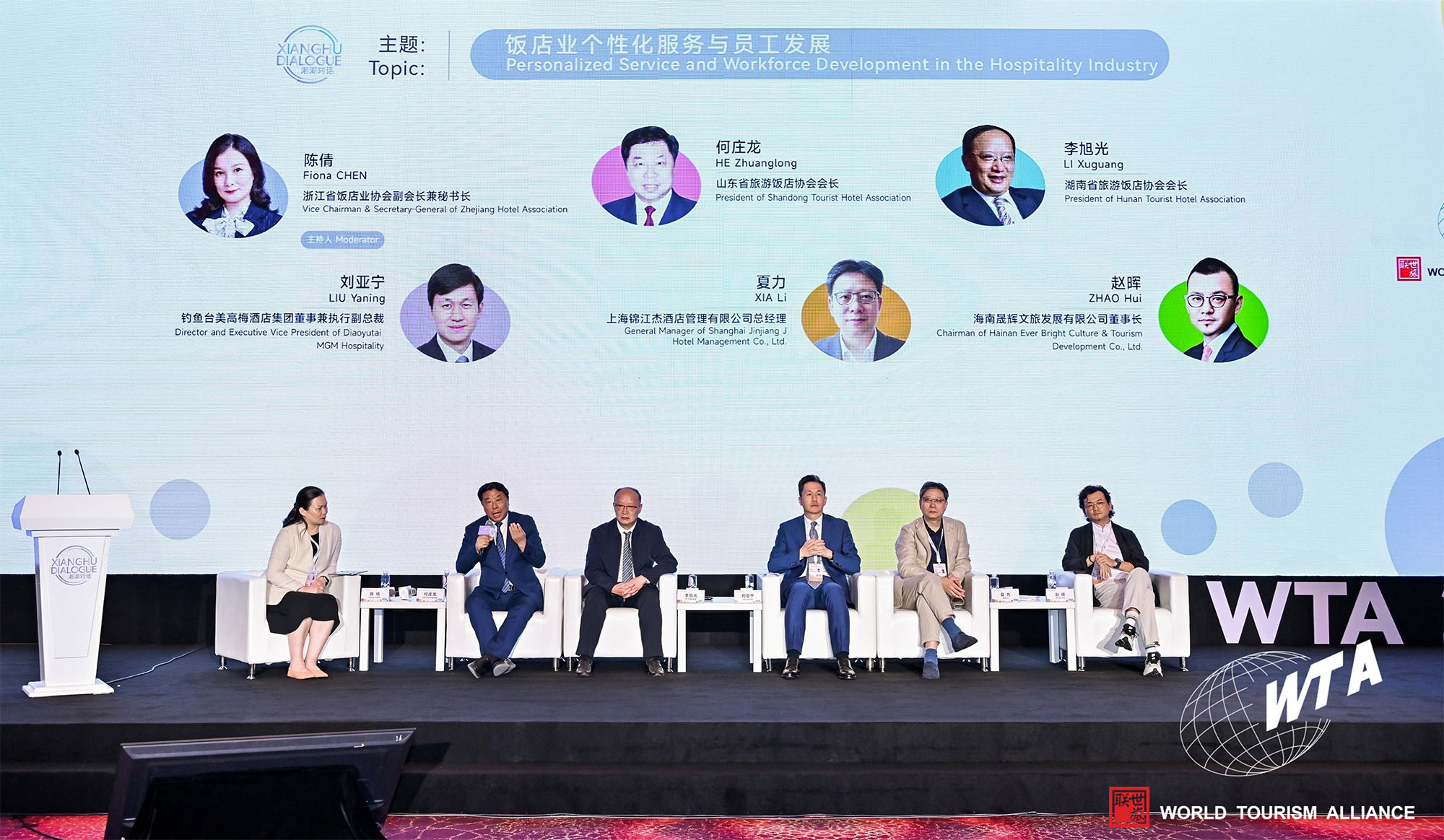
Moderator:
Ms. Fiona CHEN, Vice Chairman & Secretary-General of Zhejiang Hotel Association
Panelists:
Mr. HE Zhuanglong, President of Shandong Tourist Hotel Association
Mr. LI Xuguang, President of Hunan Tourist Hotel Association
Mr. LIU Yaning, Director and Executive Vice President of Diaoyutai MGM Hospitality
Mr. XIA Li, General Manager of Shanghai Jinjiang J Hotel Management Co., Ltd.
Mr. ZHAO Hui, Chairman of Hainan Ever Bright Culture & Tourism Development Co., Ltd.
Here is a transcript of the discussion:
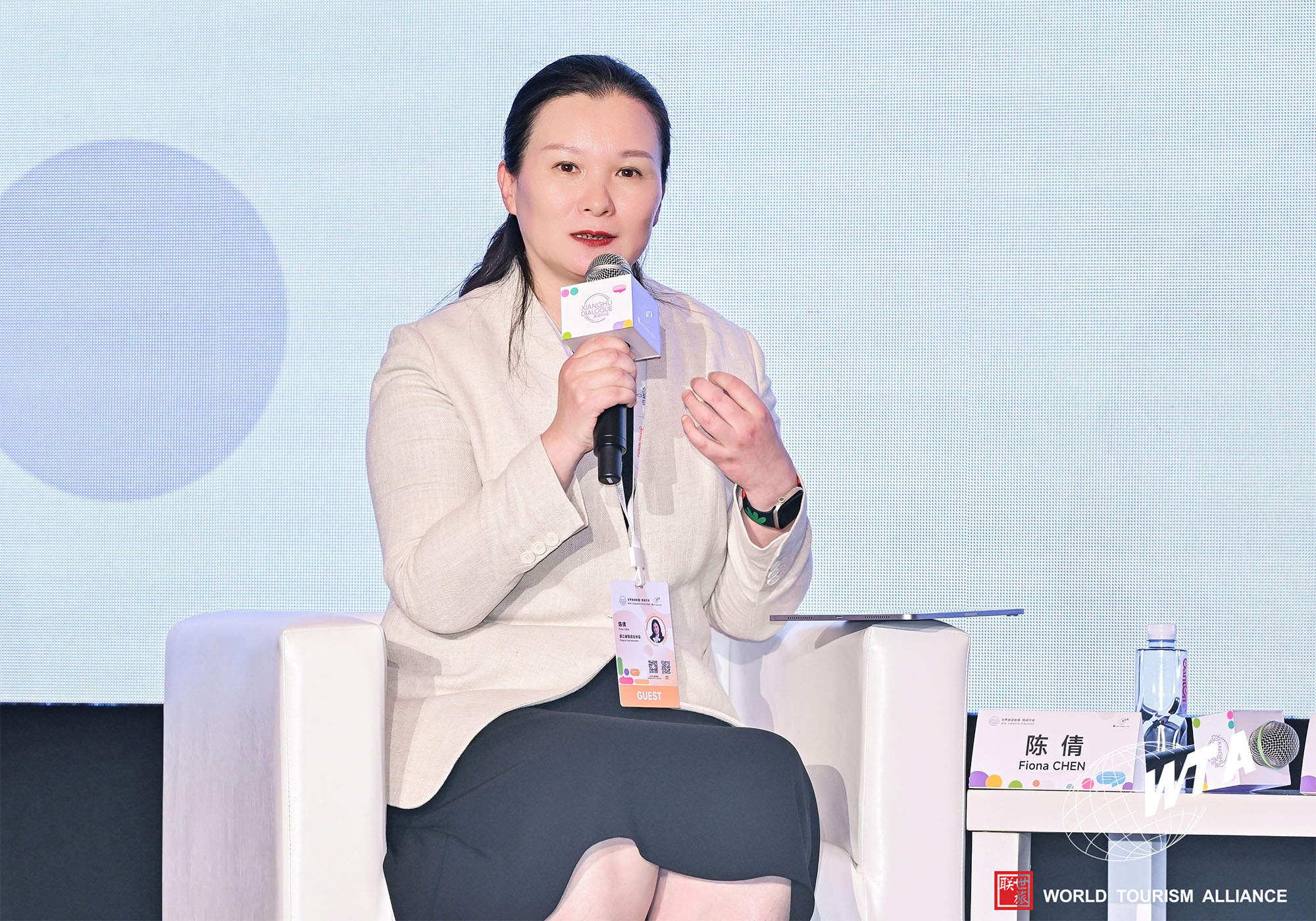
Moderator: Hospitality development revolves around people, and personalization is a key focus. From the perspective of industry associations, how do you perceive the connection between personalized service and employee development?
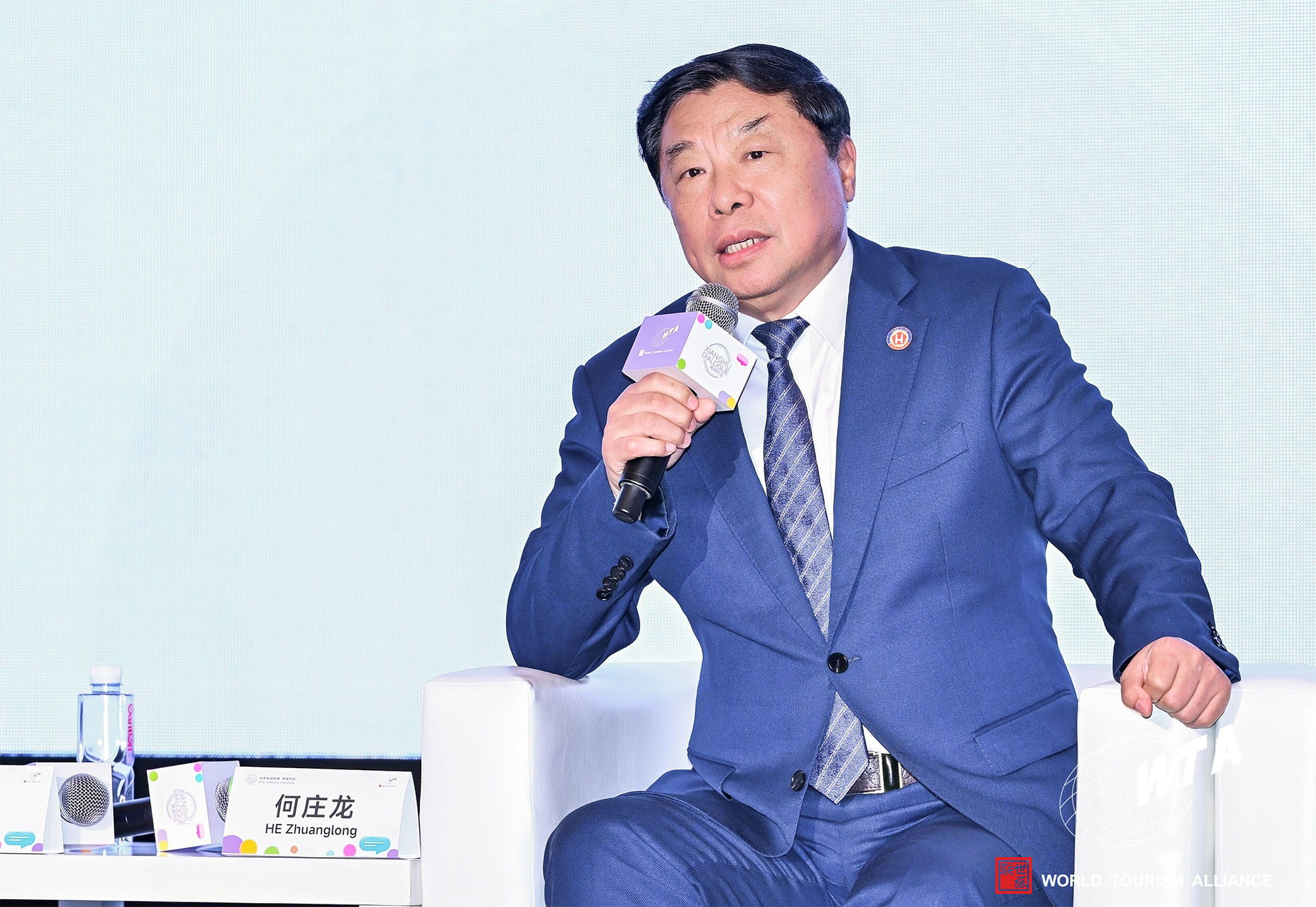
Mr. HE Zhuanglong: As China’s hotel industry enters a new development cycle, personalized and differentiated services are experiencing robust growth. Addressing how to align industry trends with personalized service and employee development is a pressing challenge. I propose a simple principle: "Focus on emotional value", which emphasizes meeting consumers’ emotional needs. For instance, in Shandong Province, we have successfully hosted the "Hospitable Shandong" Service Festival for seven consecutive years. Recently, we launched the "Hospitable Shandong" concierge service, aiming to build a comprehensive personalized service system across the entire industry, supply chain, processes, and lifecycle to ensure satisfaction everywhere. Personalized service relies on employee engagement, so we prioritize staff growth and development. During the Shandong Service Festival, held every September, we organize activities that comprehensively care for employees. Our approach centers on three key aspects: 1. Enhancing Career Development: We ensure that employees joining hotels have opportunities for growth and promotion. 2. Improving Emotional Value: We emphasize familial management over coercive methods, bridging the gap between staff and management to inspire enthusiasm. 3. Creating a Fusion of Family, Society, Hotel, and Employees: For example, during payroll distribution, we offer pensions to employees’ parents—50 yuan monthly for parents under 50 years old, increasing with age. This pension card system enhances filial piety and instills pride among employees’ families.
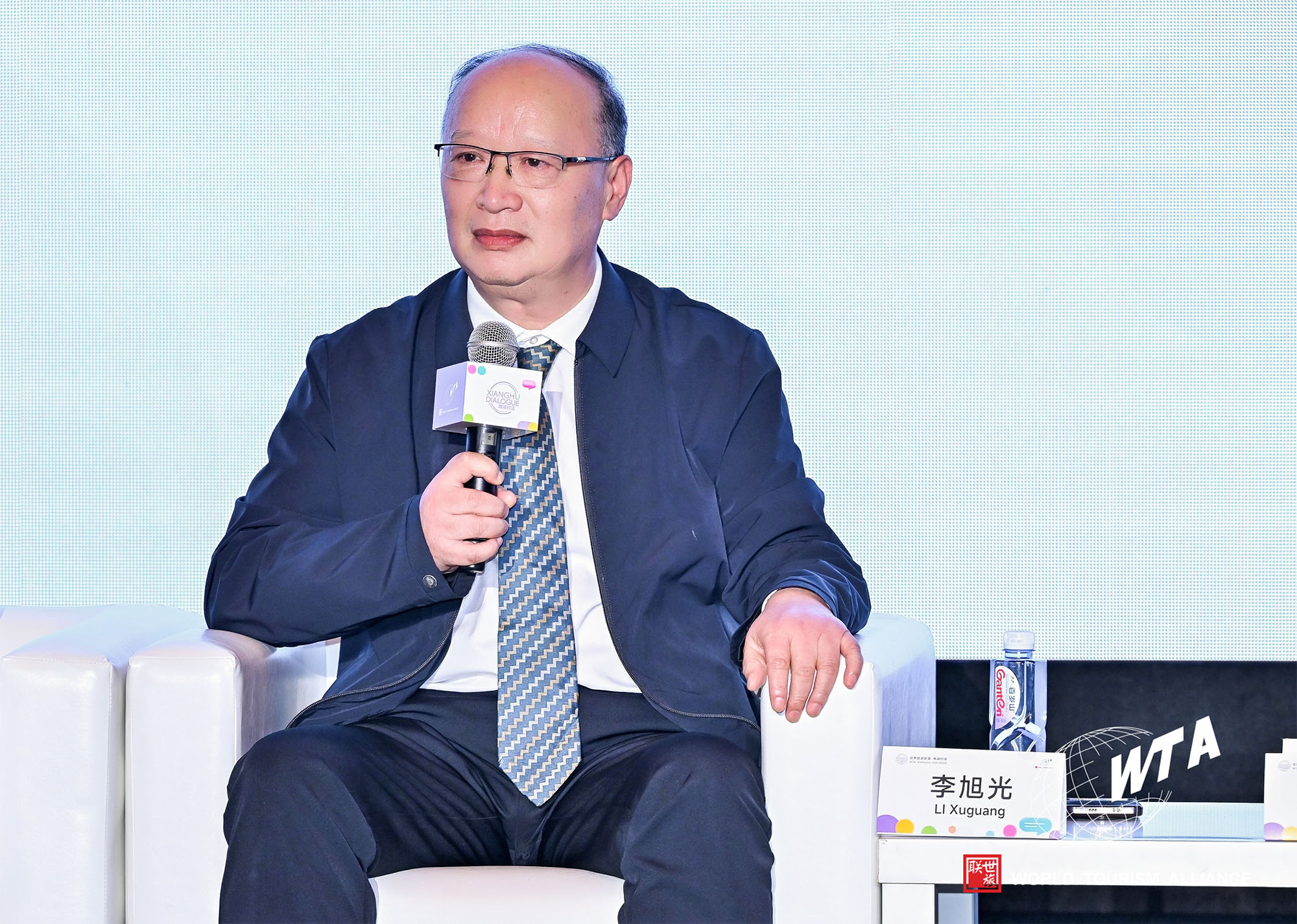
Mr. LI Xuguang: With the evolution of time, technological innovations, and the rise of trends like low-carbon living and health-conscious lifestyles, my understanding of personalization continues to evolve. I believe that personalized service must reach new heights. We need to create high-quality products that ensure exceptional customer experiences. Product design should be practical and cost-effective while meeting customers’ needs. In terms of workforce development, we must address two key issues: focusing on the present and planning for the long term. "Focusing on the present" means addressing the immediate concerns of young employees, such as salaries, benefits, and living conditions. A common issue in the hospitality industry is that new employees often feel overworked, underpaid, and lacking a sense of belonging, making it difficult for them to stay committed. These employees typically take on the most work while receiving the lowest pay—this is a pressing issue we must address. "Planning for the long term" involves focusing on career development. If employees see no future prospects, retaining them becomes challenging. Currently, recruitment and retention are significant issues across the industry. Beyond traditional administrative promotion pathways, we should establish skill-based promotion channels to ensure opportunities for every employee. I firmly believe that excellent employees are the key to meeting customer demands. To me, an outstanding employee possesses three qualities: 1. Professionalism, built from a foundational work ethic. 2. Skills, enabling rapid professional growth. 3. A passion for service, which is essential for delivering exceptional customer care.
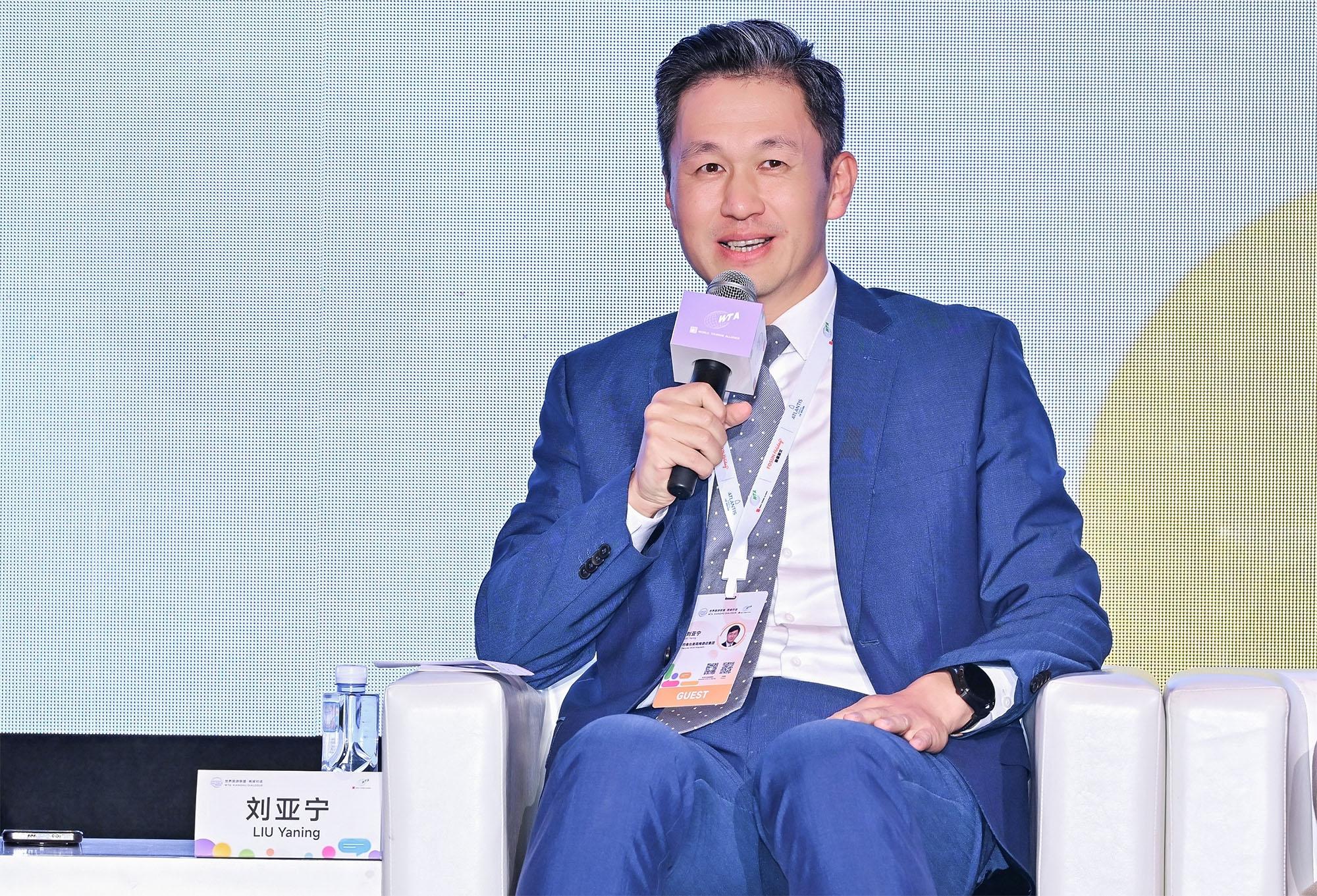
Mr. LIU Yaning: Consumer demand is shaping the evolution of China’s hotel workforce. The trajectory of the hospitality industry reveals similarities across eras, with each era leaving its unique mark. For example, the establishment of Jianguo Hotel in 1982 marked the advent of modern Chinese hospitality. Over the past 42 years, we have successfully cultivated a generation of professionals with international perspectives, extensive experience, and a deep understanding of local culture. Historically, renowned hotel management groups like Hilton, Marriott, InterContinental, and Shangri-La, and Diaoyutai MGM have followed Western models rooted in industrial and electrification eras. These eras demanded standardization in service procedures, efficiency enhancements, scalability across cities and brands, and specialized divisions of labor—much like the progression of Chinese kitchens from generalized roles to specialized ones. For example, Chinese kitchens now have specialized positions like cold dishes and dim sum chefs. China is entering a post-industrial, digital age, fundamentally transforming consumer behaviors. The younger workforce naturally adapts to modernization and digitalization. This opens opportunities to explore service models tailored to China’s unique cultural and market dynamics.

Mr. XIA Li: Personalized service relies on unique branding, and its success depends on employees’ dedication. At Shanghai Jinjiang J Hotel, I’d like to share three stories demonstrating this connection. First, a former driver joined our front desk team during the hotel’s opening and requested a role as a butler. As part of his duties, he conducts one-hour art tours, showcasing the hotel’s collection of nearly 1,000 artworks. This role brought him immense joy and fulfillment. Through dedication, he became the hotel’s chief tour guide and won the 2023 KOL Hotel Concierge Service Gold Award, evolving from a driver to an industry star. Second, we encourage employees to participate in photography competitions during their downtime, capturing unique perspectives of the hotel’s 400-meter-high views. These curated photographs are turned into postcards, shared with guests, and widely praised. This initiative nurtures employees’ hobbies and deepens their passion for their roles. Third, a Gen Z employee learned tea, flower, and incense arts after joining our team. She successfully managed VIP receptions during the 7th China International Import Expo, showcasing her growth and skills. These stories illustrate that achieving personalized branding and service requires frontline employees’ experiences and full support, coupled with a supportive environment and systematic backing from the hotel.
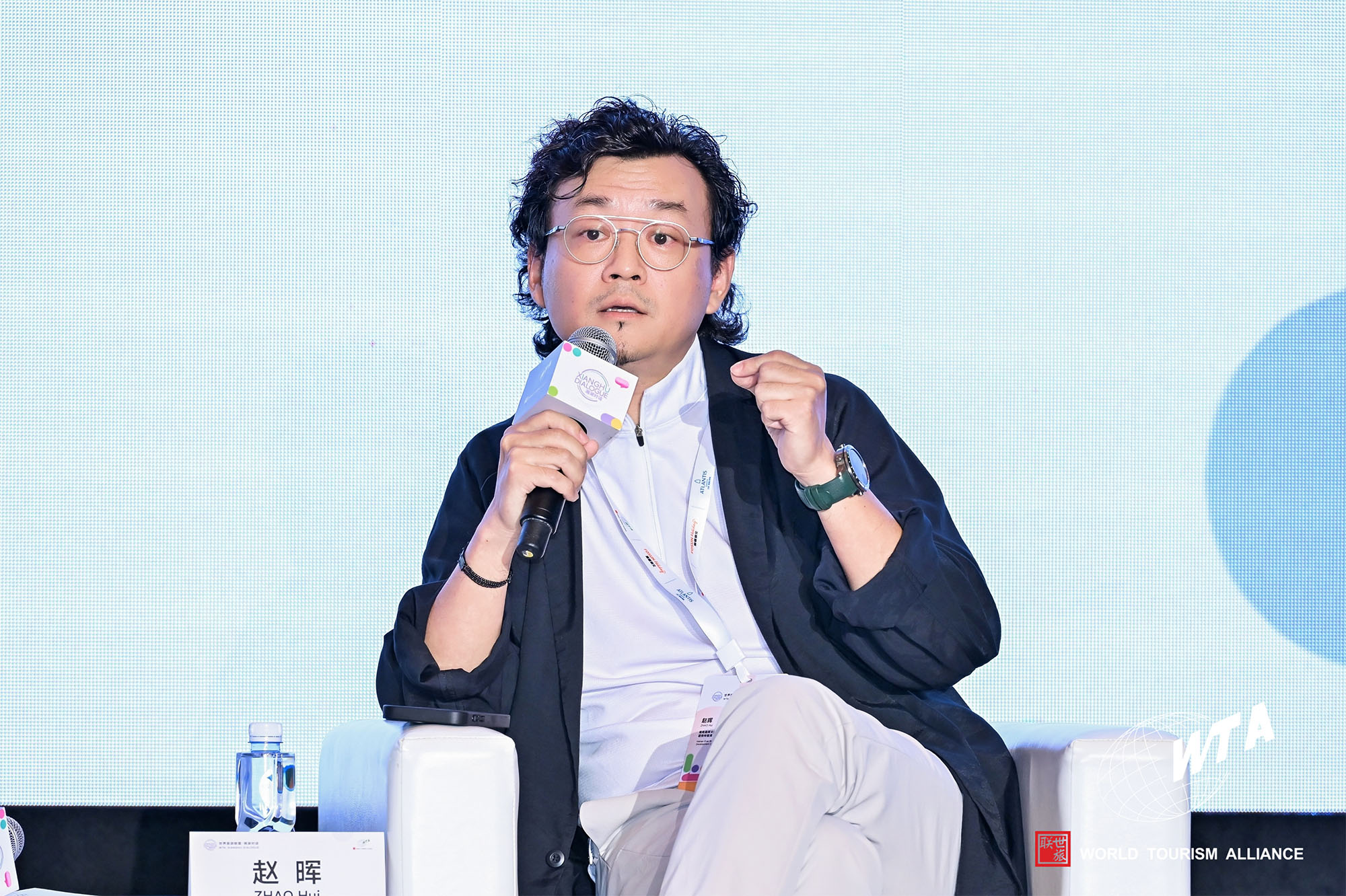
Mr. ZHAO Hui: As a think tank, our core logic lies in bridging theory and practice. First, let’s address the theoretical dimension. The topic of "Personalized Service and Workforce Development in the Hospitality Industry" involves two aspects: customer satisfaction and employee satisfaction. Both are underpinned by theoretical frameworks. The foundational theories date back to the 1950s, with subsequent researchers continually enriching the theoretical and practical bases. Scholars engaged in consumer service research often reference the expectation-confirmation theory, which suggests that consumers approach services with specific expectations. Whether service providers meet these expectations determines customer satisfaction. On a practical model level, the Customer Service Satisfaction Index has been adopted by many enterprises and adapted to local frameworks in China. Second, from a practical standpoint, tourism is inherently a practice-driven industry. With over 20 years of experience in aviation and hospitality, I often compare the two sectors. Aviation’s core value lies in safety—ensuring passengers reach their destinations safely. In contrast, the hospitality industry’s core value is creating a comfortable stay that makes guests feel at home. Despite these differences, both industries share a common challenge: aligning employee satisfaction with customer satisfaction to drive long-term excellence.
Moderator: Please summarize your takeaways in one phrase.
Mr. HE Zhuanglong: Let value lead the way and create boundless appeal.
Mr. LI Xuguang: May everyone in the industry thrive and excel professionally.
Mr. LIU Yaning: Stay grounded, look forward. Each generation has its mission, and we must pave the way for the future of China’s hospitality industry.
Mr. XIA Li: People make the difference. Let us focus on excellence, and let results speak for themselves.
Moderator: We’ve been searching for two things in our careers: a sense of value and a sense of belonging. Value comes from affirmation, and belonging comes from being loved. Whether it’s guest satisfaction, personalized service, or employee growth, affirmation and care are essential. Finally, I’d like to thank all our guests here today. You are the leaders in this industry, guiding the hospitality sector forward. Your insights will inject energy and hope into the sector on the way to enhance service quality and workforce development. Thank you.